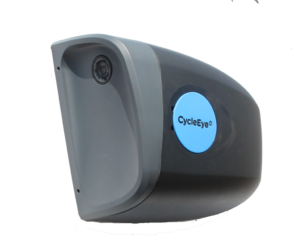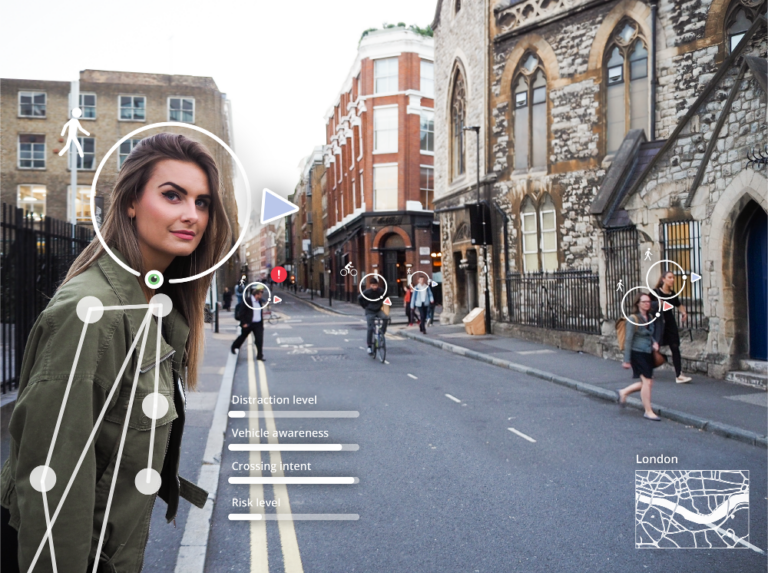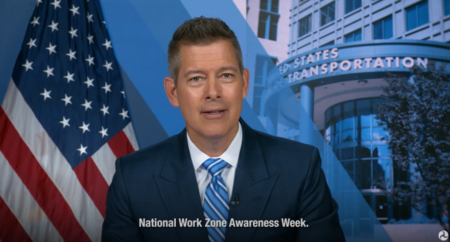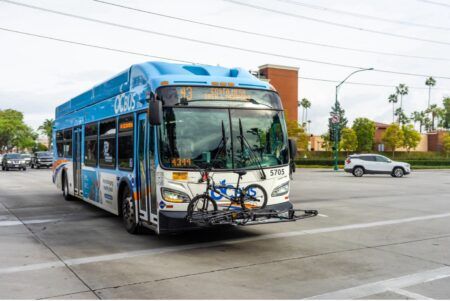Transport for London (TfL) has announced that five new safety innovations are due to be trialed on buses in the UK capital this year as part of the agency’s Bus Safety Innovation Challenge program.
Over the past decade the number of people killed or seriously injured as a result of a collision involving a bus or coach has decreased by 54%, but TfL and the Mayor of London, Sadiq Khan, recognize that much more needs to be done to eliminate fatalities and serious injuries altogether and to achieve the city’s Vision Zero. The Innovation Challenge pairs London’s bus operators with innovative developers to come up with cutting-edge technologies and new solutions to road danger that could complement TfL’s existing Bus Safety Standard. In a previous initiative that was launched in 2017, a £500,000 (US$623,000) innovation fund was split between six projects, including Abellio’s trial of an advanced collision warning system that won Most Innovative Transport Project at the 2019 London Transport Awards.
The five successful applications for the Bus Safety Innovation Challenge fund are:
- Abellio will trial the Datik fatigue monitoring tool that calculates the risk of driver fatigue in real-time;
- Arriva will trial the Humanizing Autonomy vulnerable road user intent prediction software that analyses people walking or cycling near a bus, anticipates their behavior and alerts the driver;
- CT Plus will trial the Lytx Video-based driver safety coaching program that uses clips of actual events so that everyone can learn from them;
- Metroline will trial the JBDL lighting system that illuminates areas of greater risk around buses to other road users, comes on and off automatically in slow-speed circumstances, and that flashes to indicate when a bus is turning;
- Stagecoach will trial Fusion Processing’s pedestrian and cyclist detection and driver alert system that detects vulnerable road users faster than a human can.
 TfL will support these trials by funding specialist independent analysis. This means that robust evidence will be produced to test the effectiveness of each product in reducing casualties. TfL would then explore how to introduce any of the successful innovations into its Bus Safety Standard. The Challenge trial will complement the agency’s exiting work that includes last month’s publication of world-first bus driver fatigue research, with Tfl setting out a range of new measures that will improve road safety.
TfL will support these trials by funding specialist independent analysis. This means that robust evidence will be produced to test the effectiveness of each product in reducing casualties. TfL would then explore how to introduce any of the successful innovations into its Bus Safety Standard. The Challenge trial will complement the agency’s exiting work that includes last month’s publication of world-first bus driver fatigue research, with Tfl setting out a range of new measures that will improve road safety.
 TfL’s Bus Safety Program includes:
TfL’s Bus Safety Program includes:
- A Bus Safety Standard that requires additional and enhanced safety requirements for buses such as speed-limiting technology and automatic braking;
- New safety training for all London’s 25,000 bus drivers;
- Improved quality, consistency and analysis of bus collision data and investigations;
- Collaborative safety improvements, including operators, the Met Police and the Confidential Incident Reporting Analysis System for Transport.
“We’re determined to eliminate death and serious injury from our roads, but we know that we can’t do it alone,” said Claire Mann, director of bus operations at TfL. “Our Bus Safety Standard is resulting in safer buses arriving in London this year, and this fund will harness the power of innovators, ensuring it complements our standard, helping to make deaths and serious injuries on our roads a thing of the past.”





